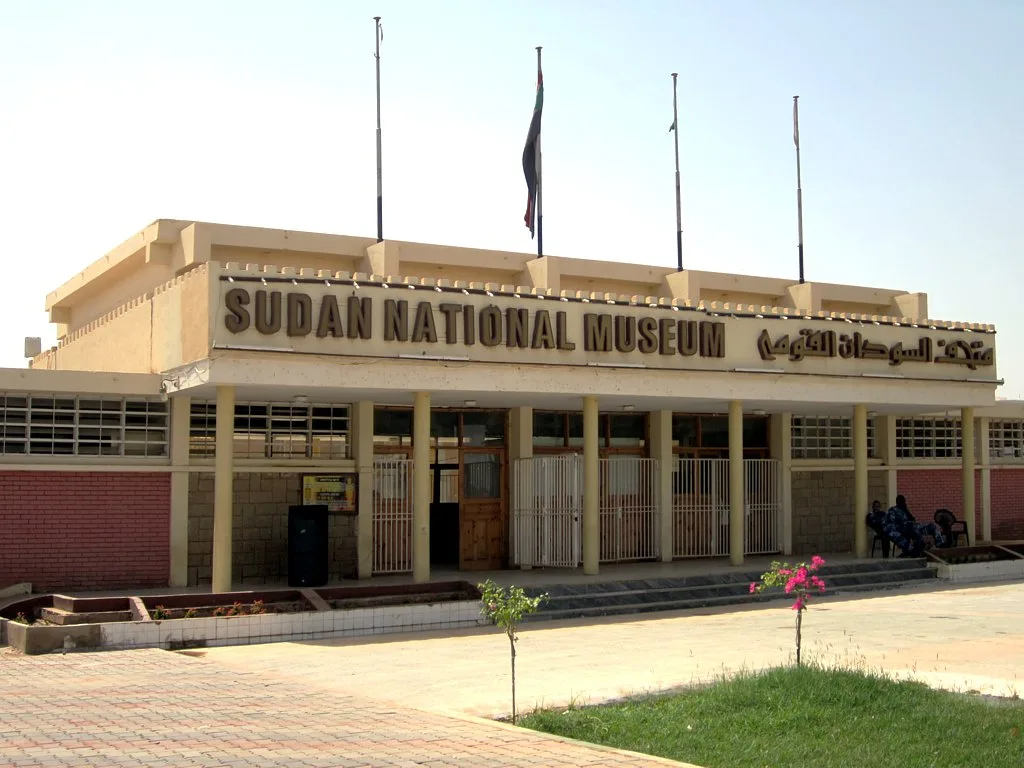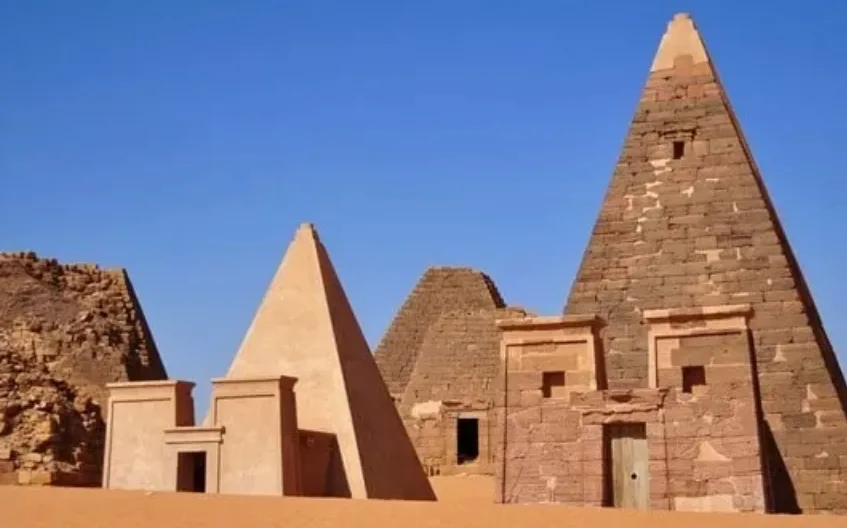Sudan’s rich cultural heritage is under severe threat as mass looting and illicit trafficking of artefacts escalate during the country’s ongoing civil war. The trafficking of Sudanese artefacts has raised concerns among the international heritage community. UNESCO is now making appeals to protect Sudan’s heritage from destruction and illicit trafficking.
Reports indicate that the National Museum of Sudan in Khartoum has been a major target, with satellite images revealing evidence of a large-scale looting and smuggling operation orchestrated by the Rapid Support Forces (RSF). Some of these priceless artefacts have been trafficked to South Sudan, raising concerns among cultural preservationists globally.
The National Museum houses the world’s most extensive Nubian archaeological collection, along with artefacts from ancient civilisations such as the Kingdom of Kush and the medieval Kingdom of Alwa. The Nubian collection includes mummies dating back to 2,500 BCE, making them some of the earliest examples in the world.

However, the specific items looted remain unidentified, although reports suggest that some have been offered for sale online and on social media platforms.
The RSF’s assault on the museum was first reported in June 2023. The widespread damage to cultural heritage sites has only increased since the conflict began.
The Smithsonian Institution’s Cultural Heritage Monitoring Lab, in collaboration with the Smithsonian Cultural Rescue Initiative, has been assisting Sudanese authorities in monitoring 14 key cultural sites through high-resolution satellite imagery. A December 2023 report confirmed damage to several significant locations, including the National Museum, the Ethnographic Museum, and the Old Republican Palace.
The destruction of Sudan’s heritage has drawn comparisons to the fate of cultural properties in Iraq and Syria, where conflicts led to mass looting and irreversible damage. UNESCO has expressed profound concern about reports of military activity on the Island of Meroe, a World Heritage Site that encompasses the royal city of the Kushite kings, Naqa’s religious site, and the Musawwarat es Sufra temple complex. The organisation has urged the international community to remain vigilant about the trafficking of Sudanese cultural property.

UNESCO stated, “UNESCO recalls the obligations of all parties to comply with international humanitarian law by refraining from damaging, looting or using cultural property for military purpose. The organisation is particularly concerned by reports of looting at the National Museum of Sudan, [whose] restoration has been coordinated by UNESCO with Italy’s funding since 2019. It contains important historical pieces of antiques, statues and archaeological collections of high historical and material value.”
Additionally, UNESCO highlighted concerns about other museums, “Several other important collections have been reported stolen from the Khalifa House Museum and Nyala Museum.” The organisation is currently cross-checking these reports to determine the extent of the damage.
Furthermore, UNESCO reiterated its call for global vigilance, stating, “UNESCO reiterates its call upon the public and the art market involved in the trade of cultural property in the region and worldwide to refrain from acquiring or taking part in the import, export or transfer of ownership of cultural property from Sudan. Any illegal sale or displacement of these cultural items would result in the disappearance of part of the Sudanese cultural identity and jeopardise the country’s recovery.”
UNESCO has been proactive in organising training for Sudan’s neighbouring countries, providing law enforcement and judiciary members with the skills needed to combat the trafficking of cultural property. In addition, the organisation is utilising satellite imagery to assess the risk and damage to Sudan’s cultural sites, including two world heritage sites, Gebel Barkal and the sites of the Napatan Region, as well as the archaeological sites of the Island of Meroe.
Emergency measures have also been implemented in five archaeological museums in Sudan, including the safeguarding of collections and the digitisation of over 1,700 objects. UNESCO has established a centre in Port Sudan to support displaced artists and cultural professionals, offering them a safe space to work and network.
The civil war, which began in April 2023, has claimed as many as 45,000 lives and displaced nearly 10 million people. The conflict has not only caused humanitarian devastation but also threatens to obliterate Sudan’s cultural heritage, a vital element of its national identity. As the looting continues, the international community is being called upon to protect and preserve Sudan’s invaluable cultural heritage from further destruction.